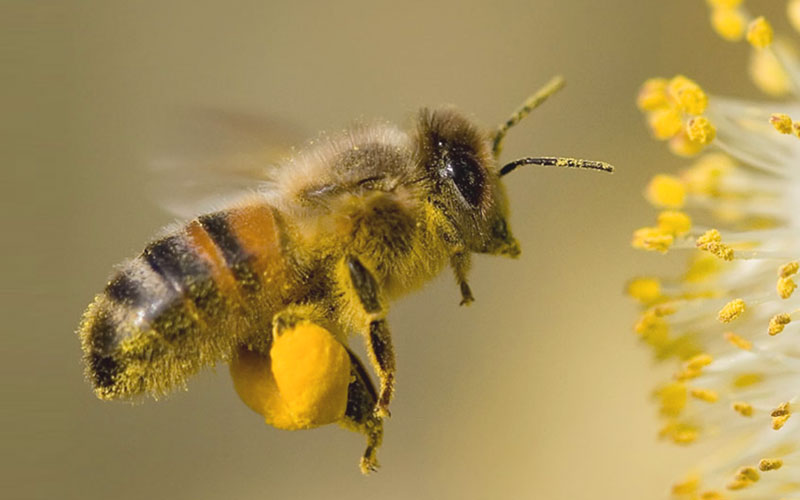Why a world bee day?
The United Nations General Assembly has noted that there is an urgent need to address the problem of declining pollinator diversity in the world and the risks this poses to the sustainability of agriculture, human livelihoods and food supply.
The role of bees as pollinators.
The first fact to bear in mind is that the honeybee (Apis mellifera) is the most efficient of all pollinating insects and is becoming a little more industrious every day: several years ago bees accounted for 70%-80% of flower visitors. Today this percentage already reaches 90%-95% of the total number of flower visitors.
Now let’s do numbers: a colony is more or less 60,000 bees, if we take into account that they go out every day for pollen and nectar with an average frequency of 15/20 trips per day and that in each of these trips they visit between 30-50 flowers, we can get an idea of the wonderful and arduous work that these insects do in just one day of work.
And what do we do?
Nowadays the environment is in continuous change due to human society: the increasing urban extension, deforestation, pollution, the use of chemicals in agriculture, climate change, invasive species (among others), cause the decrease and disappearance of pollinator species in some areas.
So, now that we know what an incredible animal the bee is and the great work it does, why don’t we try to improve their lives now that they need us?
Let’s take action
The United Nations General Assembly recognizes that it is very important to promote sustainable development in its three dimensions (economic, social and environmental) in an innovative and coordinated manner. It also recognizes the urgent need to protect bees in a sustainable manner and to this end wants to raise public awareness with actions aimed at protecting bees.
Our recommendations:
– If we see areas of hives in the field or natural swarms, let’s not go near them to hinder their work, let’s make a small detour and that’s it.
– If we see bees in a flower, collecting their nectar or flying nearby, do not try to kill them… they are at their task and if we do not hit them, they will not sting us.
– If we are fans of beekeeping, always put us in the hands of professionals, bees like any animal, need technical knowledge to take them.
– Let’s support beekeeping and its products, such as honey and pollen, because they are treasures of the good work of our bees.






